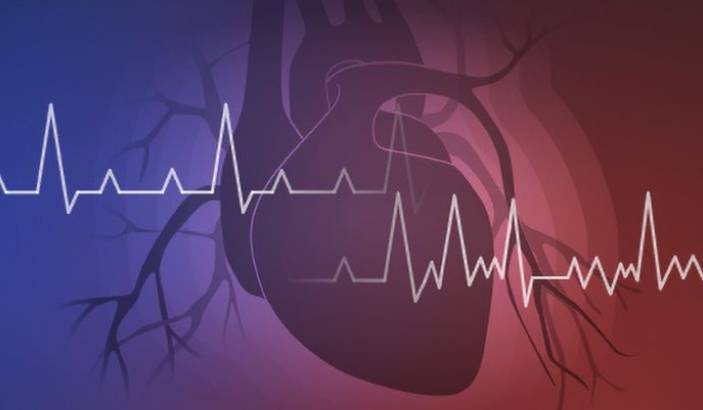Heart rate variability (HRV) is a measure of the variation in time between successive heartbeats, and it is an essential tool for assessing physical, mental, and emotional health. HRV can vary based on different factors like age, gender, personal health circumstances, and lifestyle choices. In this article, we will explore the range of HRV for different groups and offer evidence-based solutions to improve HRV.
HRV for different groups:
HRV can vary between different groups, including athletes, sedentary individuals, and those with specific health conditions. For example, a study published in the Journal of Hypertension found that people with hypertension had reduced HRV. Similarly, individuals with diabetes had significantly lower HRV compared to healthy individuals, as reported in a study published in the Journal of Diabetes Research.
HRV based on age and gender:
Studies have shown that the normal HRV range for adults is between 60-100 bpm, but this range can vary depending on age and gender. A study published in the Journal of the American Geriatrics Society found that HRV decreases with age, with the largest decline occurring after age 50. This decline is thought to be due to changes in the autonomic nervous system, which controls heart rate and other vital functions.
When it comes to gender differences, studies have shown that women tend to have slightly higher HRV than men. A study published in the International Journal of Cardiology found that in healthy individuals, women had higher HRV than men, with the largest difference observed in the high-frequency component of HRV. However, these differences are relatively small, and more research is needed to fully understand the impact of gender on HRV.
Additionally, there are differences in HRV based on physical fitness levels. Athletes, for example, have been found to have higher HRV than sedentary individuals. This is likely due to the fact that regular exercise and physical activity can improve overall cardiovascular health and increase HRV.
Personal health circumstances and HRV:
Personal health circumstances can significantly affect HRV, and it cannot be defined as “normal.” Factors such as stress levels, sleep quality, physical activity, and diet can all impact HRV. For example, a study published in the International Journal of Behavioral Medicine found that chronic stress can reduce HRV. In contrast, regular exercise can improve HRV.
In addition to the factors discussed above, there are several other factors that can impact HRV, including medications, illness, and genetic factors. Certain medications like beta-blockers can lower HRV, while others like antidepressants can increase it. Certain medical conditions like heart disease or autoimmune disorders can also affect HRV.
Moreover, HRV is not just an indicator of physical health but also mental and emotional health. For example, individuals with depression or anxiety tend to have lower HRV than those without these conditions. Additionally, a study published in the Journal of Psychophysiology found that individuals with high levels of emotional intelligence had higher HRV.
Research has also shown a connection between HRV and cognitive function. A study published in the Journal of Alzheimer’s Disease found that individuals with mild cognitive impairment had lower HRV compared to healthy individuals. Similarly, a study published in the Journal of Neurology, Neurosurgery, and Psychiatry found that lower HRV was associated with poorer cognitive function in older adults.
HRV and Mental Health
Another aspect of HRV that is important to consider is its relationship with mental health. Multiple studies have suggested that HRV can be an indicator of mental health, specifically stress and anxiety.
Reduced HRV has been associated with anxiety and depression, while improving HRV can potentially improve mental health. There are several ways to improve HRV, including regular exercise and mindfulness meditation, both of which have been shown to reduce stress and anxiety.
Research has suggested that incorporating regular exercise into your routine can improve HRV. Moderate-intensity exercise for at least 30 minutes a day, for five days a week, has been found to significantly increase HRV in healthy individuals. Additionally, regular exercise has also been shown to reduce anxiety symptoms in individuals with anxiety disorders.
Mindfulness meditation has also been found to improve HRV and reduce stress and anxiety. Practicing mindfulness meditation regularly has been shown to significantly increase HRV in healthy individuals. Moreover, individuals with generalized anxiety disorder have reported reduced anxiety and depression symptoms after practicing mindfulness meditation regularly.
It is important to remember that while HRV can be an indicator of mental health, the relationship between HRV and mental health is complex and bidirectional. While reduced HRV can indicate poor mental health, stress and anxiety can also lower HRV. It is essential to consult with a healthcare professional and understand the limitations of HRV tracking devices when incorporating HRV into a mental health treatment plan.
Ways to improve HRV:
- Stress management: High levels of stress can negatively impact HRV. Stress management techniques like mindfulness meditation, deep breathing exercises, and yoga can help reduce stress and improve HRV.
- Regular exercise: Exercise is beneficial for overall health and can improve HRV. It is recommended to engage in moderate-intensity exercise for at least 150 minutes per week to improve HRV.
- Adequate sleep: Poor sleep quality and insufficient sleep can lower HRV. It is recommended to aim for 7-9 hours of quality sleep each night to improve HRV.
- Balanced diet: A diet high in processed foods and saturated fats can negatively impact HRV. Eating a balanced diet rich in fruits, vegetables, whole grains, and lean protein can improve HRV.
- Alcohol moderation: Excessive alcohol consumption can lower HRV. It is recommended to consume alcohol in moderation to improve HRV.
- Smoking cessation: Smoking is known to have a negative impact on HRV. Quitting smoking can improve HRV and overall health.
- Recovery strategies: As mentioned earlier, incorporating recovery strategies like stretching, foam rolling, and massage can help improve HRV, especially for athletes.
Conclusion
HRV is an essential tool for assessing physical, mental, and emotional health. While HRV can vary between different groups and individuals, it cannot be defined as “normal.” Personal health circumstances can significantly affect HRV, and making lifestyle changes can improve it. By incorporating stress management techniques, regular physical activity, and a balanced diet, you can optimize your HRV and ultimately feel better physically, mentally, and emotionally.








